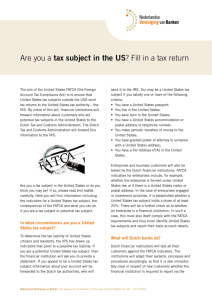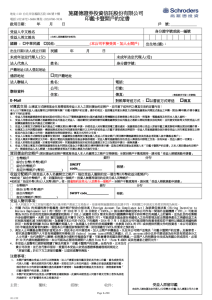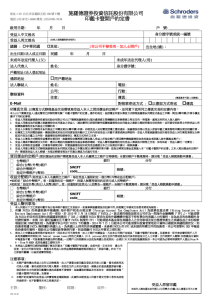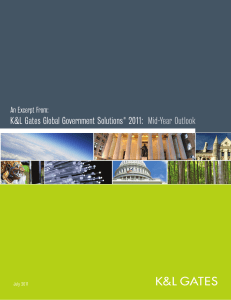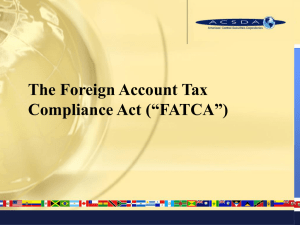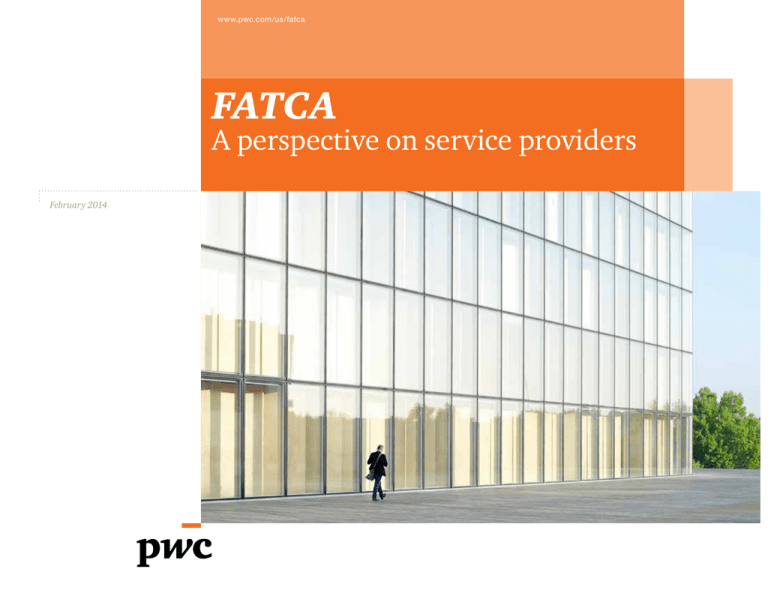
www.pwc.com/us/fatca
FATCA
A perspective on service providers
February 2014
Contents
Introduction1
Requirement for controls
2
Impact on service providers
3
Meeting client needs
4
Conclusion5
Contacts6
2
FS Viewpoint
Introduction
The Foreign Account Tax
Compliance Act (FATCA), enacted
in 2010 as part of the Hiring
Incentives to Restore Employment
(HIRE) Act, was designed to
provide the Internal Revenue
Service (IRS) better capability
to identify US tax evaders who
are concealing their assets
directly in foreign accounts,
or indirectly, through offshore
companies. FATCA requires
companies to comply with new
tax information reporting and
withholding requirements as well
as investor due diligence and
documentation requirements.
FATCA’s requirements apply
broadly to foreign financial
institutions (FFI), non-financial
foreign entities (NFFE ),as well as
US withholding agents (USWA).
Certain FFIs are required to
register with the IRS and enter into
FFI Agreements. The consequences
of noncompliance include being
subject to, or liable for, a 30
percent withholding tax on
income from US sources (FATCA
withholding) and eventually on
the gross proceeds from the sale of
securities that could produce USsourced interest and dividends.
The purpose of this paper is to
explore how FATCA’s requirements
may impact the relationship
between companies and their
service providers, and to discuss
how service providers can work
with their clients to understand
their FATCA related needs and
prepare to provide information
to enable their clients to certify
FATCA compliance.
Service providers need to be
aware of FATCA requirements
and understand the relationship
to the services they offer to their
clients. Changes to services
offered, contract terms, liability
provisions and/or internal controls
reporting requirements are all
possible effects of the FATCA
regulation. Service providers
must be knowledgeable about
the challenges their clients are
facing associated with FATCA and
be prepared to respond to their
clients’ changing needs as a result
of the regulation.
FATCA was enacted
with a primary goal
of providing the IRS
with an increased
ability to detect US
tax evaders.
FATCA | A perspective on service providers
1
Requirement for controls
Embedded within the FATCA
regulation are compliance
requirements that include
certifications to be made to the
IRS by an appointed “responsible
officer” of participating FFIs
(PFFIs) (see Figure 1). While the
initial certifications are at a point
in time and non-recurring, the
responsible officer certification
that the PFFI maintained effective
internal controls related to
FATCA compliance is required
periodically, and covers the
effectiveness of internal controls
over the certification period.
Failing to make the required
certifications could constitute a
default under the FFI Agreement,
which may result in the IRS
terminating the FFI Agreement
and subjecting the companies to
FATCA withholding. PFFIs must
design and implement a FATCA
controls framework to comply
with the periodic certification
requirements by June 30, 2014.
FATCA compliance will be
an ongoing and potentially
challenging responsibility for
many PFFIs. Companies that have
begun to consider certifications
and controls as part of their
FATCA compliance programs
have identified that some of the
processes, and thereby the controls
relating to FATCA compliance, are
performed by service providers. As
companies analyze the regulatory
requirements and inventory their
processes and controls, they
identify areas where they expect
to rely on internal controls at
their service providers to support
the PFFI responsible officer
certification responsibilities.
FATCA compliance
will be an ongoing
and potentially
challenging
responsibility
for PFFIs.
The following table outlines the certifications required for PFFI compliance.
Figure 1
Type of certification
Frequency
When is certification required?
IRS Regulation Reference
Completion of due diligence and documentation requirements
on pre-existing accounts
One-time
60 days after the 2nd anniversary of the FFI Agreement
§1.1471-4(c)(7)
No formal or informal practices or procedures in place from
August 6, 2011 through the date of such certification to assist
account holders in the avoidance of Chapter 4
One-time
60 days after the 2nd anniversary of the FFI Agreement
§1.1471-4(c)(7)
Certification on the effectiveness of internal controls over
FATCA compliance covering a three-year period
Recurring
6 months after the 3rd full calendar years following the effective
date of the FFI Agreement
§1.1471-4(f)(3)
2
PwC Foreign Account Tax Compliance Act
Impact on service providers
Many of the companies affected
by the requirements of FATCA rely
on service providers — including
fund administrators, custodians,
prime brokers, transfer agents,
and law firms — to assume
responsibility, or provide support,
for some internal controls related
to areas impacted by FATCA’s
requirements.
Service providers perform a
range of important services that
may directly or indirectly relate
to the areas where internal
controls are required to support
a PFFIs continued compliance
with FATCA. Many service
providers have even evaluated
the requirements of FATCA and
identified additional services
that can help meet their clients’
operational needs. Responsible
officers will need to find effective
ways to support their certification
requirements related to effective
internal controls, with adequate
information from their service
providers related to outsourced
services. These requirements may
drive client demand for assurance
over internal controls at service
providers to support the PFFIs
compliance and certification
requirements for FATCA.
Understanding how to address
this demand is critical. While
some oversight has always existed
and most service providers have
third-party reporting in place over
internal controls over financial
reporting, their clients may now
begin to also demand third-party
reporting over internal controls
for FATCA related services (such
as onboarding) in order to support
the responsible officer certification
of compliance with FATCA to the
IRS. As soon as possible, service
providers and their clients should
begin identifying internal control
responsibilities related to services
provided and expectations related
to supporting the responsible
officer certification by the PFFI.
The table below identifies examples of service providers that are
likely providing services related to areas affected by FATCA.
Figure 2
FATCA regulation area
Service provider
Fund administrators
Custodians
Prime brokers
Transfer agents
Law firms
Legal entity classification
Registration and certification
Account assessment
Withholding
Reporting
P
P
P
P
P
P
P
P
P
P
P
P
P
P
P
P
IT general controls
FATCA | A perspective on service providers
3
Meeting client needs
Service providers currently use
a variety of independent audit
reports to demonstrate the design
and operating effectiveness of
internal controls to their clients.
However, these reports typically
focus on internal controls over
financial reporting and will likely
not address the controls necessary
to support responsible officers in
demonstrating FATCA compliance.
In order to support their clients
certification of compliance to the
IRS, service providers will need
to pursue reporting on internal
controls related to the services that
align to the FATCA requirements.
4
PwC Foreign Account Tax Compliance Act
An independent attestation report
on internal controls related to
these service areas can help service
providers efficiently and effectively
provide the assurance their clients
need to certify compliance. Service
providers could use this report to
demonstrate the effectiveness of
internal controls in place related to
the services offered to responsible
officers of their clients.
The service provider could provide
this report to clients who outsource
all or part of their business
processes that are impacted
by FATCA.
FATCA reports differ
from SOC 1 reports
in that they report
on controls related
to operations and
compliance.
Conclusion
As companies continue to
develop plans to achieve FATCA
compliance, many are relying
on existing service providers
to support the internal control
requirements of the regulation.
Consequently, there is an
increasing need for transparency
and trust that internal controls are
in place at service providers and are
aligned to regulatory requirements
such as FATCA. This dynamic
changes the relationship between
service providers and their clients.
Companies needing to comply
with FATCA, and their responsible
officers who need to certify
compliance, will look to their
service providers to demonstrate
effective controls in support
of the company’s regulatory
requirements. Service providers
will need to explore their service
obligations and reporting options to
meet their clients changing needs.
Independent reports designed to
provide assurance on the design
and operational effectiveness
of operational and compliance
controls can efficiently and
effectively help service providers to
meet this new demand, providing
necessary information to meet
the needs of companies and their
responsible officers. In our view,
service providers should engage
in discussions with their clients
to determine the expectations
associated with FATCA compliance
and reporting required from the
service provider to meet their
clients’ needs.
FATCA | A perspective on service providers
5
Contacts
For more information, please contact:
Jeff Trent
Partner
jeff.s.trent@us.pwc.com
+1 646 471 7343
William Eaves
Director
william.eaves@us.pwc.com
+1 646 471 4891
Julianne Inozemcev
Partner
julianne.inozemcev@us.pwc.com
+1 617 530 5119
Matthew Giordano
Director
matthew.c.giordano@us.pwc.com
+1 646 471 0187
Stuart Finkel
Partner
stuart.finkel@us.pwc.com
+1 646 471 0616
Brandon Laws
Director
brandon.p.laws@us.pwc.com
+1 617 530 7192
Scott Dillman
Principal
scott.dillman@us.pwc.com
+1 646 471 5764
Tanya SooHoo
Director
tanya.c.soohoo@us.pwc.com
+1 646 471 4275
Dominick Dell’Imperio
Partner
dominick.dellimperio@us.pwc.com
+1 646 471 2386
6
PwC Foreign Account Tax Compliance Act
www.pwc.com/us/fatca
IRS Circular 230 Disclosure
This document was not intended or written to be used, and it cannot be used, for the purpose of avoiding
US Federal, state or local tax penalties that may be imposed on any taxpayer.
This presentation has been prepared for general guidance on matters of interest only, and does not constitute
professional advice. You should not act upon the information contained in this publication without obtaining
specific professional advice. No representation or warranty (express or implied) is given as to the accuracy
or completeness of the information contained in this publication, and, to the extent permitted by law,
PricewaterhouseCoopers LLP, its members, employees and agents do not accept or assume any liability,
responsibility or duty of care for any consequences of you or anyone else acting, or refraining to act, in
reliance on the information contained in this publication or for any decision based on it.
© 2014 PricewaterhouseCoopers LLP, a Delaware limited liability partnership. All rights reserved. PwC refers
to the US member firm, and may sometimes refer to the PwC network. Each member firm is a separate legal
entity. Please see www.pwc.com/structure for further details. This content is for general information purposes
only, and should not be used as a substitute for consultation with professional advisors.
Solicitation
Section title
9

